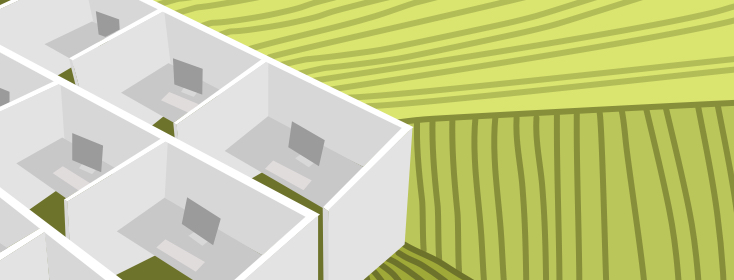Can I Retire? Should I?
Like with all of us, my cancer diagnosis threw a real wrench into my life. Suddenly, what was easy and taken-for-granted was no longer easy at all. For instance, working at an 8-5 job became a true challenge.
Feelings of guilt
I was actually fortunate that my employer was fairly generous with the time off they gave me. They never complained about me leaving early when I became so fatigued I had to go home, the multitude of hours I missed to see the doctor, or the days when I was simply too sick from chemo to go to the office. Even though they didn't complain, I felt terribly guilty.
I felt like I was letting down my employer and my fellow employees because of all of the time I was missing. Not only that, I was starting to get chemo brain. My job as a grantwriter required that I do a lot a lot of research. I not only had to be able to comprehend what I was reading, I had to retain it so that I could use the facts and information in grant applications. Chemo brain was making that capability very tough.
Considering retirement
I was pushed to finally make a retirement decision when we had a regime change at work. The new "kids" wanted things done their way and wanted only their friends in the office. They wanted those of us who had been in the department for a while to move on to new pastures. They were still very lenient with my time off, but they moved me out of my office to a cubicle ... and then to another, less desirable, cubicle.
My desk ended up being in the highest traffic area of the office. When you're trying to read and concentrate on laws and rules and requirements ... and remember what you read (not always easy under the best of circumstances and nearly impossible for me with chemo brain), distraction is not your friend! Then, when you're trying to write a convincing argument for why your school district deserves the $100,000 grant more than the neighboring district, it helps if you are not constantly interrupted.
Weighing my options
So, between a less-than-desirable work environment and the incredible guilt I felt at having to miss so much work because of my cancer, I began to really look at taking medical retirement. I learned that stage IV lung cancer automatically meant I was approved for social security disability. Perhaps even more important, it qualified me for Medicare even though I was not yet 65.
I had not met the requirements of my employer to get full retirement, but I learned that I could take medical retirement without having to pay a huge penalty for early retirement. My monthly income wouldn't be as much as it would be if I was able to work until full retirement, but at least I wouldn't get dinged with the penalty and, just as important, I would still qualify for a reasonably-priced retirement insurance.
Adjusting to my new normal
I decided to do it. It was a challenge to readjust habits (like going out to eat every single day/night), hobbies (I love to run agility with my dogs, but it is not a cheap sport), and buying (I am the worst impulse buyer you'll ever meet) in order to make ends meet. But, for me, not living under the stress I put myself through as well as that coming from my employer, taking medical retirement was the best thing I could have ever done.

Join the conversation